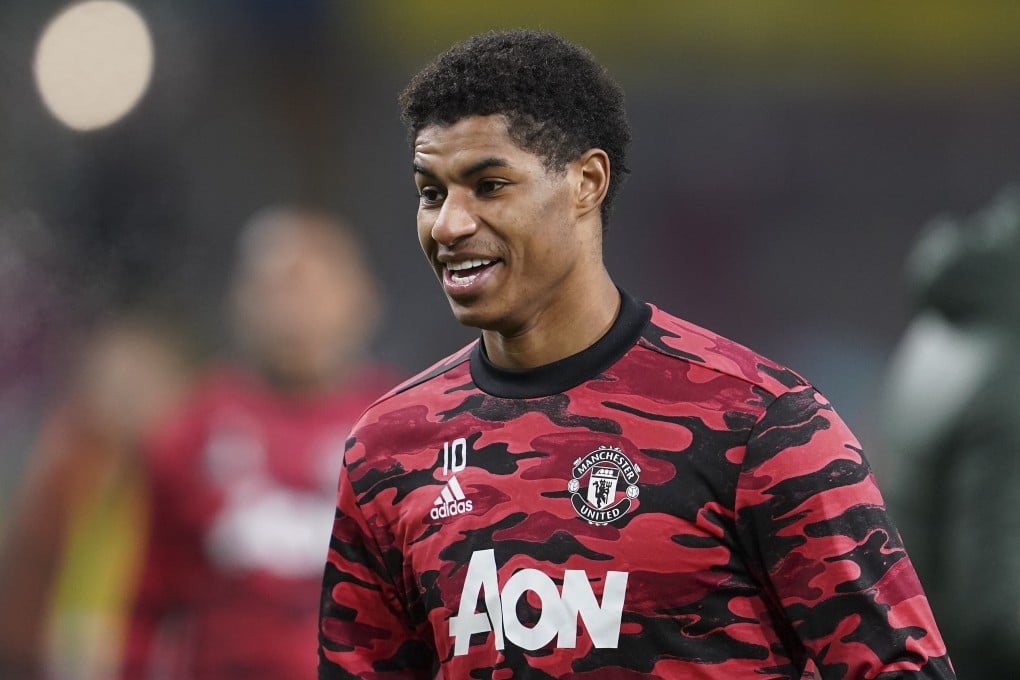On The Ball | Marcus Rashford: Manchester United’s crown jewel who became a national treasure, even in Liverpool
- The young Manchester United and England forward Marcus Rashford has successfully straddled the historic divide between the two cities
- His efforts for social justice in the UK are worthy of a banner at Anfield

Scousers have a deep, venomous rivalry with Mancunians. The cities of Liverpool and Manchester are a mere 30 miles apart but there is little kinship between the conurbations. They have always competed economically and culturally.
The most visible battleground is between their flagship football teams. The relationship between Liverpool and Manchester United has often been poisonous. When English football’s heavyweight clubs clash, spite cascades down from the stands.
Marcus Rashford has become a hero for many on Merseyside who would normally revile a United player.
“When the fans come back, it is not beyond the bounds of possibility that a Manchester United striker’s name will be sung on the Kop and [Everton’s] Gwladys Street,” Ian Byrne, the member of parliament for Liverpool’s West Derby constituency, said. And Byrne is no publicity-craving politician looking to stir up controversy.

